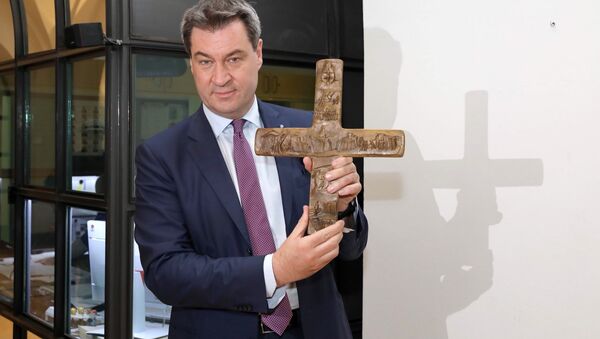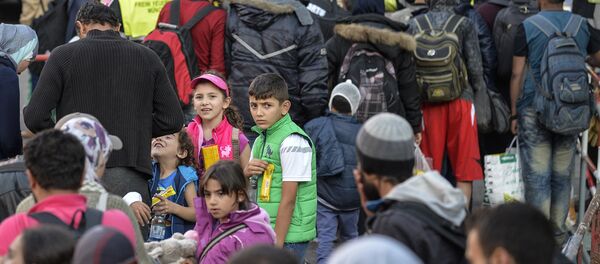"I believe state and religion must be strictly separated," SPD member and Bundestag MP Uli Grötsch told Sputnik. "That's why I think it's very condemnable, what Söder did."
His statement came just a day after Bavaria's state head, Markus Söder, announced that crosses should be hung up in all public buildings in the southern German state, a step that he himself considers an important act toward maintaining Bavarian identity and a "clear avowal of Christian values."
READ MORE: 'Christian Values'? Bavaria's Head Orders Crosses Be Hung Up in Public Buildings
Commenting on the initiative, Grötsch noted that Germany is a state in which there must be a place for all religions, "certainly also in Bavaria." In his opinion, the crosses undermine religious neutrality within the country.
"I think that the message, that Mr. Söder sends to the representatives of other faith communities, is frightful, regardless of whether it is about Jewish, Muslim, Buddhist, or whatever other faith. Germany is a place where all people must be able to live with their faith — and this is not limited to only one," the politician noted.
The measure is set to be implemented in all Bavarian state authority buildings, schools and courts starting from June 1.
Bavarian authorities have had a particularly critical approach toward newcomers, not least due to the large number of foreigners residing in the federal state.
For instance, Horst Seehofer, Germany's interior minister and former Bavarian head repeatedly advocated a tougher approach toward migrants and criticized the open-door policy of German Chancellor Angela Merkel. He also said that his country "has been shaped by Christianity" and that "Islam doesn't belong to Germany."
In 2015, Merkel announced that Germany would open its borders to migrants fleeing to Europe in search of a better future. However, of late, Berlin has been trying to curb its migration policy, partly due to strong criticism and security concerns among local residents and politicians.


